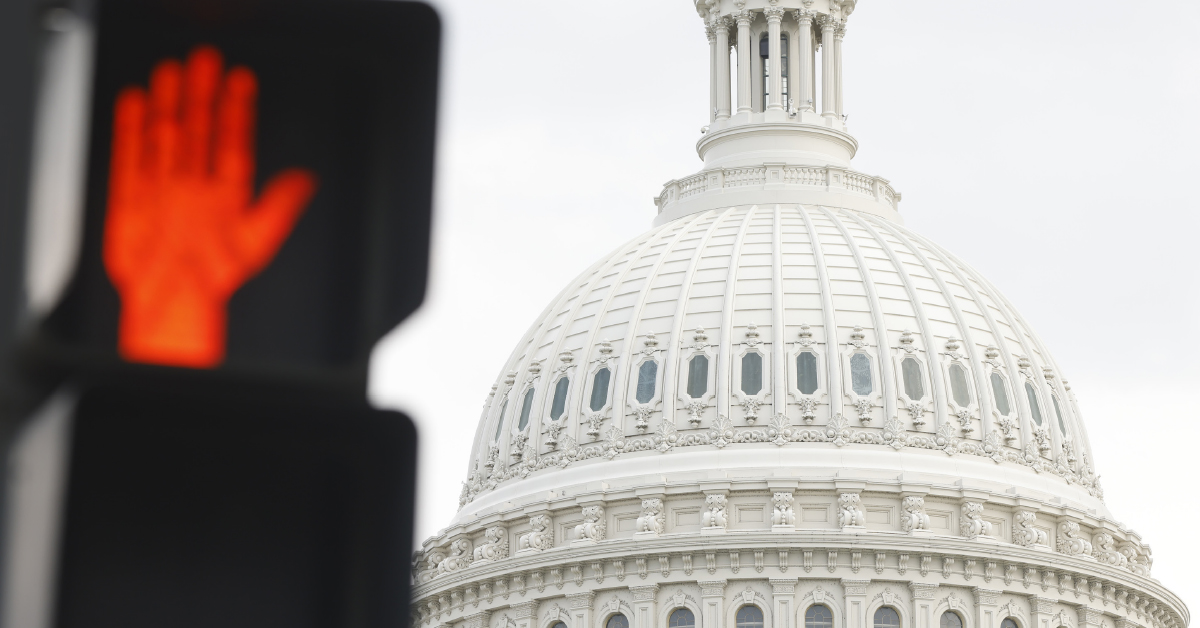How does the government shutdown affect my retirement?
On October 1, 2025, the federal government shut down. What does that mean for you and your retirement? We’ll explain what happens in a government shutdown, how long it may last, and how it may affect your retirement savings and benefits.

What’s a government shutdown?
A shutdown is when the government doesn’t have the money to keep running all its services. This usually happens because Congress and the president can’t agree on a budget for the upcoming fiscal year. Many government offices and services that are considered nonessential temporarily close or operate with limited staff until the funding dispute is resolved. Essential agencies—those related to your health, safety, and security—stay open.
Federal workers are classified into three groups. What happens to their job depends on the work they do:
- Nonessential workers—Office administrators, park rangers, and researchers are among the group of nonessential federal workers. During a shutdown, these workers may be furloughed, which means they’re placed on unpaid leave until the shutdown ends, and they can go back to work. Other nonessential workers may be laid off, without the possibility of returning to their jobs. Roughly 750,000 federal employees are expected to be furloughed1 and over 4,2002 were laid off in the 2025 government shutdown.
- Essential or excepted workers—Active military personnel, federal law enforcement officers, medical doctors, and air traffic controllers are considered essential or excepted workers. They’re required to keep working without pay until Congress and the president agree to a budget. After the funding dispute is resolved, payroll offices open back up and these workers are paid back in full.
- Exempt workers—A much smaller group classified as exempt workers aren’t affected by the shutdown because their pay is secured by other sources. They’ll continue to work their government jobs and be paid as usual.
How long do government shutdowns last?
Since 1976, there have been 21 government shutdowns, excluding this year’s, lasting from a few days to several weeks. The longest shutdown in U.S. history lasted 35 days, from December 2018 to January 2019.3 Many shutdowns, however, were resolved more quickly, often within a week or two. But it’s impossible to know how long the 2025 shutdown will last.
How does the government shutdown affect your retirement savings?
Government shutdowns are political disruptions that can cause investor uncertainty, which can lead to market volatility. As a result, your retirement account balance may go up and down quickly depending on how your investments perform. While this can be unsettling, historically, shutdowns have caused only short-term market changes. That’s why it’s helpful to stay focused on your long-term retirement goals throughout a government shutdown.
What happens to your retirement benefits?
- Social Security payments—Social Security payments are mandatory spending, so they’re funded automatically every year and don’t need approval from Congress. If you’re retired and currently receive Social Security beneifts, your monthly payment will continue without interruption.
- Within the U.S. Social Security Administration, nonessential workers may still be furloughed. This can create a staffing shortage, which can slow down the processing of new applications. If you recently filed for benefits or plan to, try to be patient because you may face delays.
- Medicare coverage—If you’re 65 or older or have a disability, Medicare may be your primary health insurance. Fortunately, Medicare coverage continues during a shutdown because it’s also considered mandatory spending; however, some services such as telehealth require Congress’s approval each year. In 2025, a rule allowing Medicare patients to use telehealth expired. Until funding is approved, only home dialysis patients and stroke victims will have access to this service during the shutdown.
During a government shutdown, be patient and stay the course
While a government shutdown can cause temporary disruptions and inconveniences, your Social Security payments and Medicare benefits will continue to be paid. As for your retirement savings, it’s important to stay calm and focus on your long-term financial strategy. If you have specific concerns about your retirement plan, consider reaching out to a financial professional.
1 “Potential Effects of a Federal Government Shutdown,” Congressional Budget Office, 9/30/25. 2 “Thousands Of Treasury, HHS Employees Fired In Shutdown Layoffs: Here’s What To Know,” Forbes, 10/11/25. 3 “What is the longest government shutdown? A history of federal gridlock,” USA Today, 9/29/23.
Important disclosures
Important disclosures
The content of this document is for general information only and is believed to be accurate and reliable as of the posting date, but may be subject to change. It is not intended to provide investment, tax, plan design, or legal advice (unless otherwise indicated). Please consult your own independent advisor as to any investment, tax, or legal statements made.
MGR1022254918209


